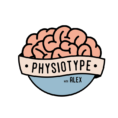Where Mind Meets Appearance.
Physiotype
What are personality types? Are they real or pseudoscience? Do personality types have a place in modern psychology? And most notably, can they be inferred visually?
What is Physiotype?
Physiotype is an attempt at creating a personality system that is both based on the Jungian cognitive functions and useful to the scientific field.
We believe that personality traits can be inferred visually, and that specific static and dynamic facial features are correlated to different Jungian cognitive functions.
Ok, But What IS Physiotype?
Physiotype is a typology method for determining personality type based on physical attributes like facial features, gait, voice, and intonation. Physiotype classifies people into 8 different personality types, inspired by Carl Jung’s theory of cognitive functions.
Carl Jung, a Swiss psychiatrist and psychoanalyst, was a pioneer in analytical psychology and had a profound impact on psychiatry, philosophy, and anthropology. He believed that every person had unique cognitive functions that affected their personality. These functions, he said, were Ne, Si, Se, Ni, Fe, Ti, Te, and Fi. Different combinations of these functions can be found in different people, making up individual personality types. The Myers-Briggs Type Indicator (MBTI), which classifies people into 16 personality types, was later created by Myers and Briggs and was loosely based on Jung’s work.
According to Physiotype, the cognitive functions are a real phenomenon that can be predicted using physical features. It asserts that these functions shape a person’s behavior and personality. For example, people of the Gamma Class type (NTP in other personality type systems) may tend to enjoy math, and someone of Delta Object type or SFP according to Myers-Briggs might have a higher inclination towards rock climbing.
View this profile on InstagramPhysiotype (@physiotype) • Instagram photos and videos
Physiotype is believed to have a hereditary component. Whether it’s genetic or epigenetic is yet to be determined, but there is a significant hereditary aspect to it. This is noticable because a Physiotype can predict personality types from birth, although it becomes challenging as children grow and their physical features change.
The current status of Physiotype is – like all typology systems – that of a pseudoscience, as it lacks peer-reviewed papers to support its claims. The experimental phase of the project is underway, and we are still gathering data to prove the replicability of our findings.
However, there is a lot of anecdotal evidence to support Physiotype. While it may not be a scientifically proven theory yet, we believe it to be very useful. Imagine being able to know a newborn’s personality type, or gauge someone’s personality during a job interview just by looking at their face. This is what we hope to achieve through Physiotype.
In this website, we will discuss Physiotype in depth, delve into the different personality types, teach you how to read faces, and keep you updated on our experiments and tests. From animals to historical figures and celebrities, we will cover it all.
Find Out Your Personality Type
Having trouble figuring out your Physiotype? Want to see if your Physiotype matches your MBTI or Socionics type?
